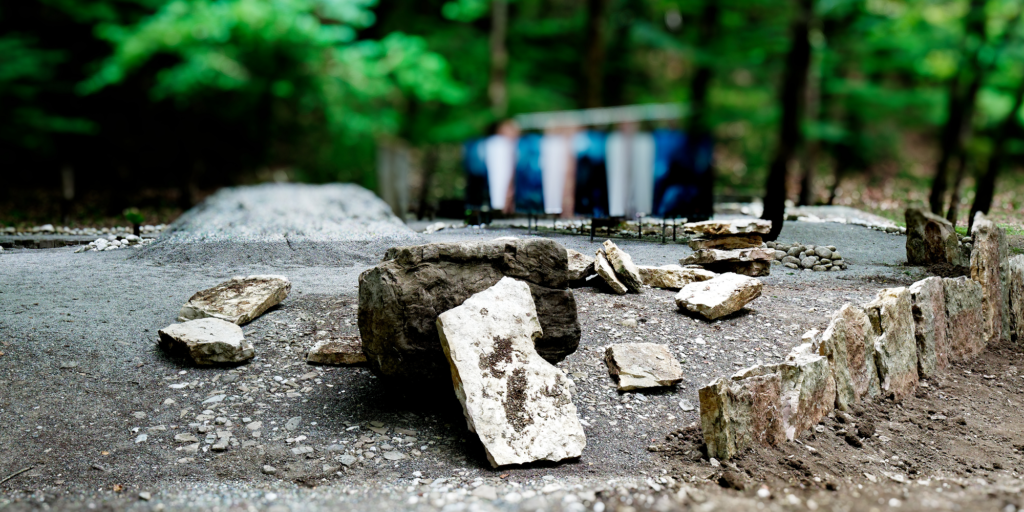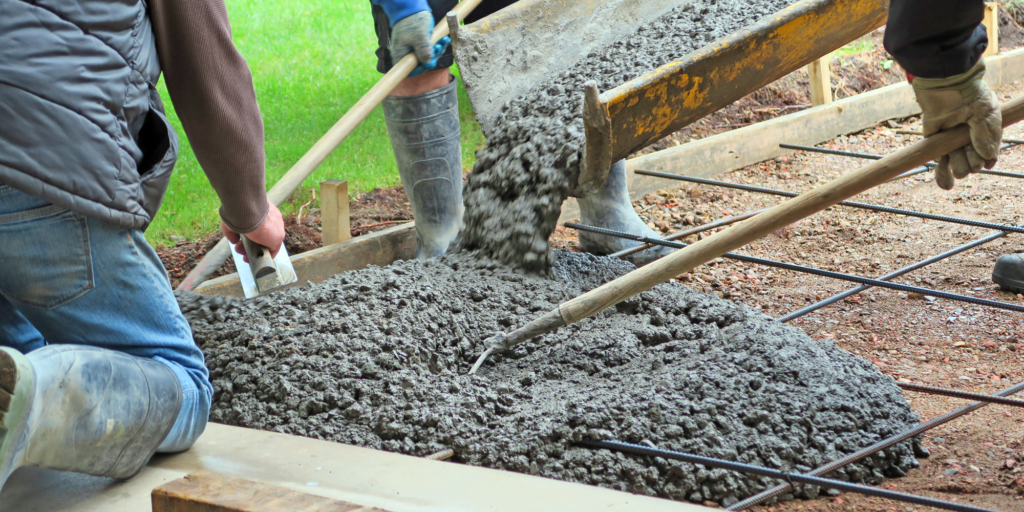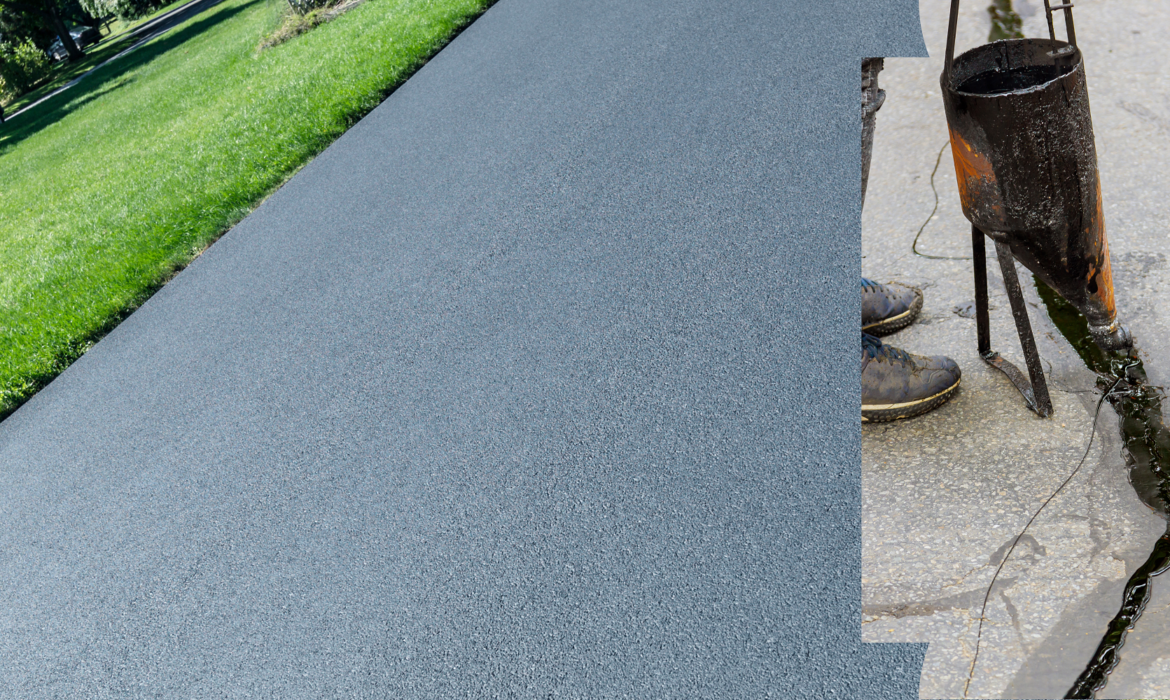Welcome to our driveway repair blog post about the ideal moment! Driveways are functional and provide curb appeal to your home. Knowing when and how to revitalize a cracked concrete or worn-out asphalt driveway can make all the difference.
Driveway materials, replacement time, and cost will be discussed. We’ll also discuss the optimum time to do this job and how to maintain your new driveway.
The Different Materials Used for Driveways
Choose a driveway material from various alternatives. Each material is distinct and attractive.
Concrete driveways are valued for their durability and adaptability. They’re crack-resistant and load-resistant. Concrete driveways may match any architectural style with varied treatments and decorations.
Asphalt driveways are smooth and low-maintenance. Due to their elasticity, they can resist freeze-thaw cycles without cracking. You can use your newly paved asphalt driveway sooner because it cures faster than other materials.
Pavers add elegance and limitless design possibilities. Pavers made of concrete or natural stone are sturdy and attractive. The variety of forms, sizes, colors, and patterns makes it easy to match your home’s style.
Gravel driveways are cheap and easy to install. Gravel has good drainage and lowers driveway watering, but it doesn’t look as polished as other materials.
The best driveway material depends on money, climate, upkeep, and personal preference. Before making a decision that will affect your property’s entranceway’s functioning and beauty, consider these issues.

How to Tell When Your Driveway Needs to Be Replaced
It’s crucial to maintain your driveway for safety and functionality. Driveways can deteriorate due to weather, heavy use, and age.
Cracking indicates a deteriorating driveway. Large or repeated cracks on the surface may indicate underlying concerns that could worsen over time. If cracks are accompanied by sinking or uneven sections, replacement is necessary.
Another sign is potholes. Your driveway looks bad and potholes might cause accidents. It may be cheaper to replace the driveway if you frequently patch potholes if they reoccur.
Drainage issues are also concerning. Water shouldn’t collect and ruin a driveway with good drainage. Standing water after rainfall or melting snow that takes too long to drain could indicate driveway structural difficulties.
Asphalt driveways deteriorate over time if their color and texture fade.
Maintaining your driveway can extend its longevity, but it will eventually need to be replaced for safety and aesthetics.
The Cost of Replacing a Driveway
Driveway replacement is a big investment, therefore you must know the cost. The cost of replacing a driveway depends on its size, material, and any extras like aesthetic components or drainage systems.
Concrete is often used for driveways. Concrete driveways are sturdy and low-maintenance but expensive to install. New concrete driveways cost $5–$10 per square foot on average.
Asphalt may be cheaper than concrete if you prefer it. The average asphalt driveway cost is $2–6 per square foot. Remember that asphalt needs regular maintenance and resurfacing every few years.
Gravel or crushed stone driveways are cheaper but may need more upkeep due to erosion or shifting.
Both installation and long-term costs must be considered. Choose a new driveway budget that accounts for future repairs and replacements.
For an exact project estimate, connect with skilled contractors who can assess your demands and provide thorough pricing based on your area and requirements.
Remember that quality materials and correct installation will extend the life of your new driveway and save you money on repairs and replacements.
The Best Time of Year to Replace Your Driveway
As a homeowner, you may ponder when to rebuild your driveway. There is no single solution to this issue, but there are elements to examine to assist you in deciding.
A key consideration is the weather. If you live somewhere with harsh winters or regular rain, replace your driveway during dry, moderate weather. This gives new asphalt or concrete time to cure without being affected by rain or freezing weather.
Also, consider your schedule and availability. If your summer is full of trips and social events, scheduling driveway replacement during a quieter season may be easier so you can focus on it.
Contractors are busier throughout various seasons, which may affect their availability and pricing. Home repair jobs like driveway replacement are popular in spring and fall, so plan ahead.
The optimal time to replace your driveway depends on your situation and other considerations. By considering these aspects and contacting industry experts, you may choose the best time for this critical home renovation job.

How to Maintain Your Driveway
Regular upkeep is crucial to driveway preservation. Your driveway can last for years and look fantastic with easy care.
Clean your driveway regularly. This includes removing leaves, dirt, and branches that build over time. Use a brush or leaf blower to remove loose debris and prevent damage.
Also, watch for oil or grease streaks on your driveway. These can degrade its appearance and cause it to deteriorate. Use kitty litter or baking soda to absorb spills, then wash with a light detergent and water.
Driveway crack inspection is another important maintenance task. Small cracks can expand fast if left untreated. Seal these cracks to avoid water entry and freeze-thaw cycles.

